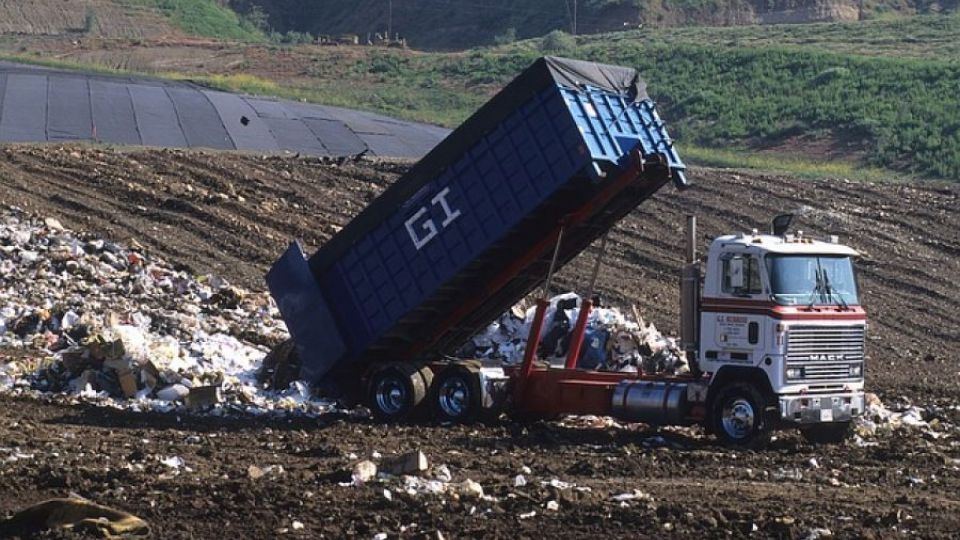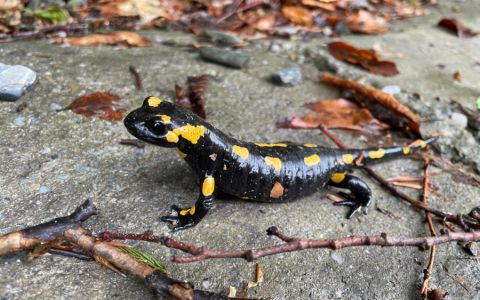Joint press release of the organisations ARNIKA, Greenpeace, DUHA Movement, Transparency International, and Green Circle: Today, on September 16, or on Friday, September 18, the Chamber of Deputies should finish the last third reading of the Act on Waste. Subsequently, the waste legislation will be considered by the Senate.
Among other things, the Members of Parliament will vote whether to enable mixed municipal waste imports from abroad for the purpose of its incineration in our country. Simultaneously, such a provision would simplify illegal waste imports to illegal landfills. The fact is that the European legislation bans cross-border transport of mixed waste to landfills. Because of that, some Members of Parliament [1] propose to limit waste imports from abroad.
The Chamber of Deputies will also vote on the term when waste landfilling without previous treatment will end. In the Czech Republic, there is still landfilled approximately a million tons of waste releasing methane - a greenhouse gas markedly worse than CO2. This happens in spite of the fact that the European directive has banned landfilling of untreated waste since 1999 [2]. The government proposal postpones the ban of landfilling without previous treatment up to 2030. The Members of Parliament [3] propose earlier end of landfills - in 2024 or 2027.
Further, the Members of Parliament will vote whether the Czech Republic becomes the eighth European country where a fee is paid for waste incineration (in facilities for energy recovery from waste), similar as, but lower than, the one for waste landfilling. The fee for incineration is recommended to us, as a way to support recycling, by experts from OECD [4], as well as from the European Commission [5], but, above all, this is, in combination with considerable reduction of landfills, the only way how to transfer waste from landfills to recycling, and not to move waste to incinerators only. Waste incinerators produce, among other things, toxic fly ash and, again, high amounts of greenhouse gases.
It will be also interesting to watch whether the Members of Parliament support proposals for improvement of recording the landfilled waste and continuous monitoring of landfills. This could prevent frauds connected with waste landfilling, and efforts to evade payments of fees for landfilling.
Before summer holidays already, the Members of Parliament approved the needed increase of the fee for landfilling from the current 500 CZK per a ton up to 1850 CZK in 2029. And they accompanied the increase by a discount for municipalities landfilling low amounts of waste, as proposed by the DUHA Movement.
Unfortunately, the Members of Parliament also approved already that hundreds of millions crowns for unpaid fees for landfilling will be forgiven to waste producers retrospectively. In the past, the landfill operators falsely declared a part of the deposited waste as material securing of the landfill, and did not pay the landfilling fees for them [6]. The fully identical and purely expedient amendments submitted by the Members of Parliament Jan Zahradník (ODS - Civic Democratic Party) and Antonín Staněk (ČSSD - Czech Social-Democratic Party), representing a clear example of influence of the landfilling lobby, due to which especially landfilling companies will save money, were refused only by the Members of Parliament from the Czech Pirate Party and STAN (Mayors and Independents), and some Members of Parliament from TOP 09 and KDU-ČSL (Christian Democratic Union). From the Government, only the Minister of Environment, Richard Brabec, voted against the amendment, however, he did not persuade any other Member of Parliament from the Government parties to join his position. Thus, the retrospective forgiving of the fees represents a retroactive intervention into the act being read, and it is unconstitutional, without any doubt. This fault may be still corrected by the Senate.
Jindřich Petrlík, ARNIKA: “The Czech Republic lags behind, in particular, in the levels of waste recycling. An up-to-date Act on Waste should promote, as much as possible, waste prevention, and, on the second place, recycling. This may happen only in the case that we adopt a fee for waste incineration, taking progressive states as an example. Waste incinerators do not protect climate in any way, and they are not a renewable energy source either. For the most part, they incinerate fossil fuels deposited in the waste. Because of that, it is entirely nonsensical to allow the incinerators, in addition, to import waste from abroad, even if they produced energy from it.”
Jan Freidinger, Greenpeace: "The way to the circular economy, more efficient utilisation of raw materials, and climate protection, really does not lead through landfills and incinerators. Another wasted chance to say goodbye to waste management of the past century, and to direct it to up-to-date, environmentally friendly, and sustainable trends."
Ivo Kropáček, expert on waste of the DUHA Movement: “The Members of Parliament should make, as soon as possible, an end to landfilling of waste that changes, in landfills, to methane, causing climate change. The postponement of this ban to 2030, as proposed by the Government, is a delay of 31 years after the term set by the European Landfill Directive. This deadline would mean, every year, higher releases of non-captured emissions of greenhouse gases from landfills than the ones produced by all the air transport in the Czech Republic. [7]”
David Ondráčka, director of Transparency International, Czech Republic: “Retrospective forgiving of fees for landfilling, back to 2015, is a clear example how lobbing works in the legislative process in our country. The motion to amend, already approved by the Members of Parliament, plays into hands of waste producers, but, mainly, to landfilling companies that are in a tight spot, and, because of that, they try to avoid, in any possible way, the duty to pay the fees due in the past. Because of the motion, not only municipalities, on the territory of which landfills are located, will lose money, but, mainly, the state that is entitled to the fees, too. Thus, the state budget could lose hundreds of millions crowns."
Daniel Vondrouš, director of the Green Circle: “In the past, the Czech Republic achieved the aim that the European legislation enables the member states to ban import of foreign waste to incinerators. However, our legislation must define this ban fully unambiguously. Otherwise, waste from countries, where it is more expensive, would be incinerated, and the ash would be landfilled in our country. This would result in increase of emissions, prices for waste collection, as well as amounts of waste in illegal landfills.”
Contacts:
Ivo Kropáček, expert on waste of the DUHA Movement, 604 207 302, This email address is being protected from spambots. You need JavaScript enabled to view it.
Aleš Miklík, press agent of the DUHA Movement, 604 131 131, This email address is being protected from spambots. You need JavaScript enabled to view it.
Jindřich Petrlík, head of the Toxics and Waste Programme of the ARNIKA Association, 603 582 984, This email address is being protected from spambots. You need JavaScript enabled to view it.
Jan Freidinger, Greenpeace,734620843, This email address is being protected from spambots. You need JavaScript enabled to view it.
David Ondráčka, Transparency International, Czech Republic, This email address is being protected from spambots. You need JavaScript enabled to view it.
Daniel Vondrouš, Green Circle, 724 215 068, This email address is being protected from spambots. You need JavaScript enabled to view it.
________________________________________
Notes:
[1https://bit.ly/2UXtCRX
[7https://bit.ly/2DPzfc7







